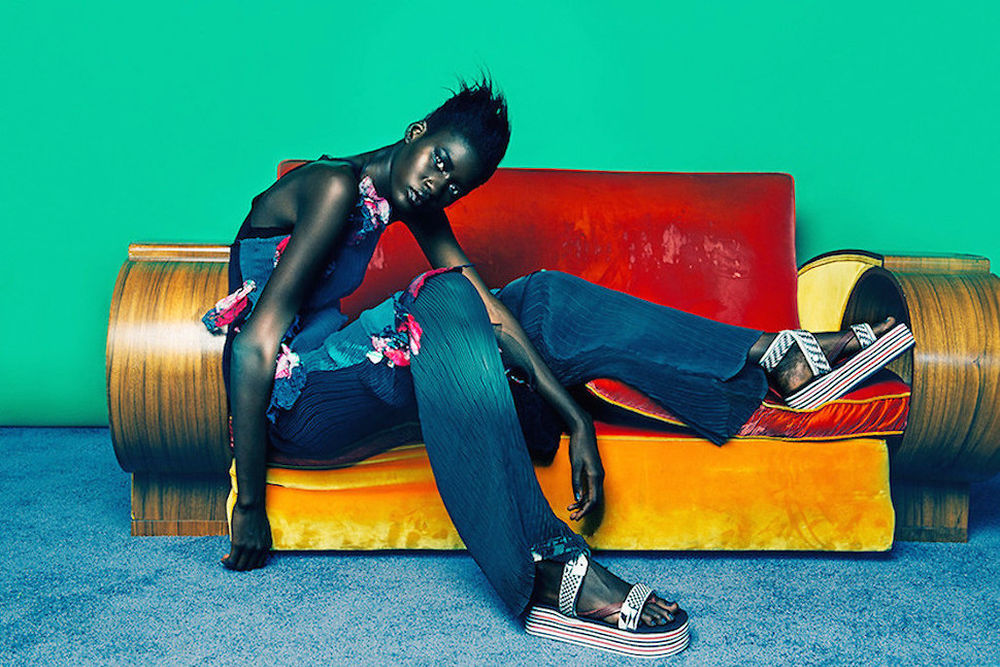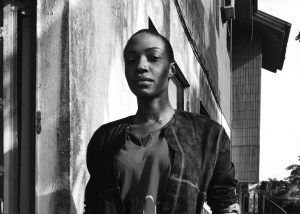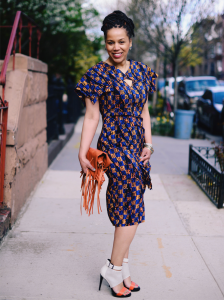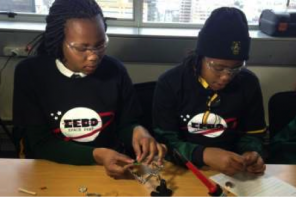For a very long time, Africa has been dying to share its passions, potential and stories with the rest of the world. Unfortunately, this desire was quickly dampened by the lack of an appropriate channel through which the people could share their “African experiences” by themselves. This brought about a very one sided and Eurocentric perspective, that starved the world of Africa’s colorful, vibrant, inspiring and diverse creative scene. Thanks to the social media there has been a significant break through unwarranted barriers, resulting to an evident change of perceptions with regard to the African people and their culture. These changes can be noticed in our daily interactions with people from different cultural backgrounds as we engage in conversations relating to Africa.
As air is to man, so is the social media to the creative African scene today. In just a few years, these online platforms have greatly improved the level of interconnectedness within the African continent; building bridges of mutual understanding, and enabling information exchange between contemporary Africa and the rest of the world. “The social media is showing how people of African descent see their homeland or country. Social media is a platform where everyone can express his feelings and share ideas. That’s why it’s important to address social media and creative Africa together.”– Beatrace Angut Oola, Fashion Africa Now. In commemoration of the Social Media Week 2017, a high-profile international panel of African entrepreneurs in Lagos, New York and Hamburg ceased the opportunity to stress on the importance of the social media for the creative African scene, using their success stories as key references. The panellists included: Mai Atafo (Fashion designer & entrepreneur), Funmi Fagbemi (Entrepreneur & Founder of VR Creative Agency), Kukua Odoi (Entrepreneur, Founder, African Prints in Fashion (APiF) and Beatrace Angut Oola (Fashion Entrepreneur & Consultant, Founder, APYA Productions & Fashion Africa Now).

Discover Beatrace Angut, founder of Africa Fashion Day Berlin, now Fashion Africa Now

VR Creative Agency is a Nigerian based agency that scouts and pushes emerging Nigerian brands onto the international scene. Some of its brands have appeared in international magazines like the New York Times and the Hunger Magazine. All its brands such as Henri Nduku and Bloke, are ‘out of the box’ fashion concepts, and they tell their stories primarily through social media. Instagram for instance, stands out as one of the best and most explored platforms in terms of storytelling. “We are very good at telling stories in Africa. We are itchy to tell our stories, and I think that is the reason why we are the biggest users of Instagram” says Funmi Fagbemi, Founder & CEO of VR Creative Agency. In South Africa for example, Instagram grew from 680 000 active users in 2013 to round about 1,1-million in 2014 according to the South African journalist and media analyst Arthur Goldstuck.
Based in Nigeria, 360nobs.com can proudly work in many parts of the world because of the social media. “It has given us and others the opportunity to see you for who you are, and tell your story your own way. Personal style is now more than corporate style.”– Noble Chibuzor, Founder & Chief Marketing Officer.
The New York based Ghanaian-German Kukua Odoi is the Founder & CEO of African Print in Fashion. Using various social media platforms as a primary means of contact between designers and clients on different continents, her business has experienced groundbreaking changes in just five years. It is evident that the diaspora and the African continent are already well connected, as there are extensive exchanges and engagements happening between both worlds for the benefit of the continent, primarily in terms of economic development. A good example of this economic boost is the online money transfer platform known as “Wari” based in Dakar Senegal. It was created in 2008 with only 2 employees. Today it records a workforce of about 300 employees across Africa. Wari is currently in partnership with 152 African banks. The platform scores transactions worth one million dollars per day and 5 billion dollars annually. It is obvious that Wari owes its success to the increased level of digital interconnectivity on the

continent. Moreover, people prefer to establish networks through social media first before engaging in personal contact. Through Instagram and WhatsApp everyone with a phone can instantly tell a story and share their experiences with the entire world. It is easier and faster! Also, there is an increased diversity in the voices sharing their stories and insights. Most importantly, “…it gives consumers the opportunity to engage with the producers directly. I think the digital phase on the continent has been very beneficial to established entrepreneurs and new designers a like.”-Kukua Odoi.
There is no doubt that the social media has become a die-hard necessity in the fashion industry. “Social media is the only way to show people from my country, my family and the world what I am doing. It is also very important for the fashion agencies, because they are starting to grade the models based on their followers on social media. “- Alpha Dia, Model. Besides viewing digital connectivity as a means to promote one’s image and career, others see this as an opportunity to give back to their homeland. Mai Atafo is a fashion designer from Nigeria who travels the world for business purposes, but ceases this opportunity to study different cultures, and pick out the best aspects of these foreign cultures in order to motivate others back home. “I compare and bring these narratives back home through social media. I use the narratives from these places to empower and inspire the people back home, telling them that we can achieve the same level and why not better.”
Also Read: Yagazie Emezi: See it through my eyes
In a highly digitalized world like ours, one might be tempted to think the print media is outdated or preferably dead. You would be wrong to make such assumptions. Despite the success story of digitalization, the print industry is very much alive, and has an active market even in Africa. Print is not dead yet! One can still find renowned and successful African print magazines such as New African Woman and Genevieve. “I believe in social media too, but print is still needed in the world. You can feel it and the feeling you have is different. There are still people out there who are not so much into the social media so, you should try to reach all of them. You can have a balance between print and online. You should combine them because you have more influence with both.”- Nussin Armbrust, Entrepreneur, Publisher, Editor, Elbblick Magazin Hamburg.
Paris was another venue where ‘Digital Africa’ was further celebrated. The first edition of Adicom Days (Africa Digital Communication Days) on March 2nd 2017, brought together 30 influential figures in the field of digital communication from Ivory Coast, Cameroon, Senegal, Ghana etc to discuss on the topic: Brand Content and Influence Marketing-Key Drivers of Digital Africa. The event provided a unique opportunity to explore digital trends, brand content, web influencers, new video media, social networks and innovative formats of digital advertising in the context of Africa, where the internet penetration rate is expanding rapidly. Likewise their counterparts in Hamburg, these African influencers took the opportunity to share not only personal and professional experiences, but also how they inspire their audiences through these experiences, their career paths and the daily challenges they face. The event concluded with the inaugural Adicom awards ceremony rewarding creativity, talent and innovation in African digital communication.
Though the number of active internet users has reportedly increased by 14% since 2015, digital communication in Africa indisputably represents a key challenge for now and in the future. That means there is still a huge gab regarding how many people can actively become part of Africa’s social economy. Nevertheless, the print and social media have a very bright future especially with respect to the creative scene of contemporary Africa. Personalised content will continue to grow.
As Africans enjoy the warm cuddle of digitalization, especially in the form of social media, it is important to understand that creativity, ambition and passion are central to enabling the diversity needed for a continuous and proper representation of the continent in the global (social) media:- “It is the future and we should be part of it”-Beatrace Angut, Fashion Africa Now.





